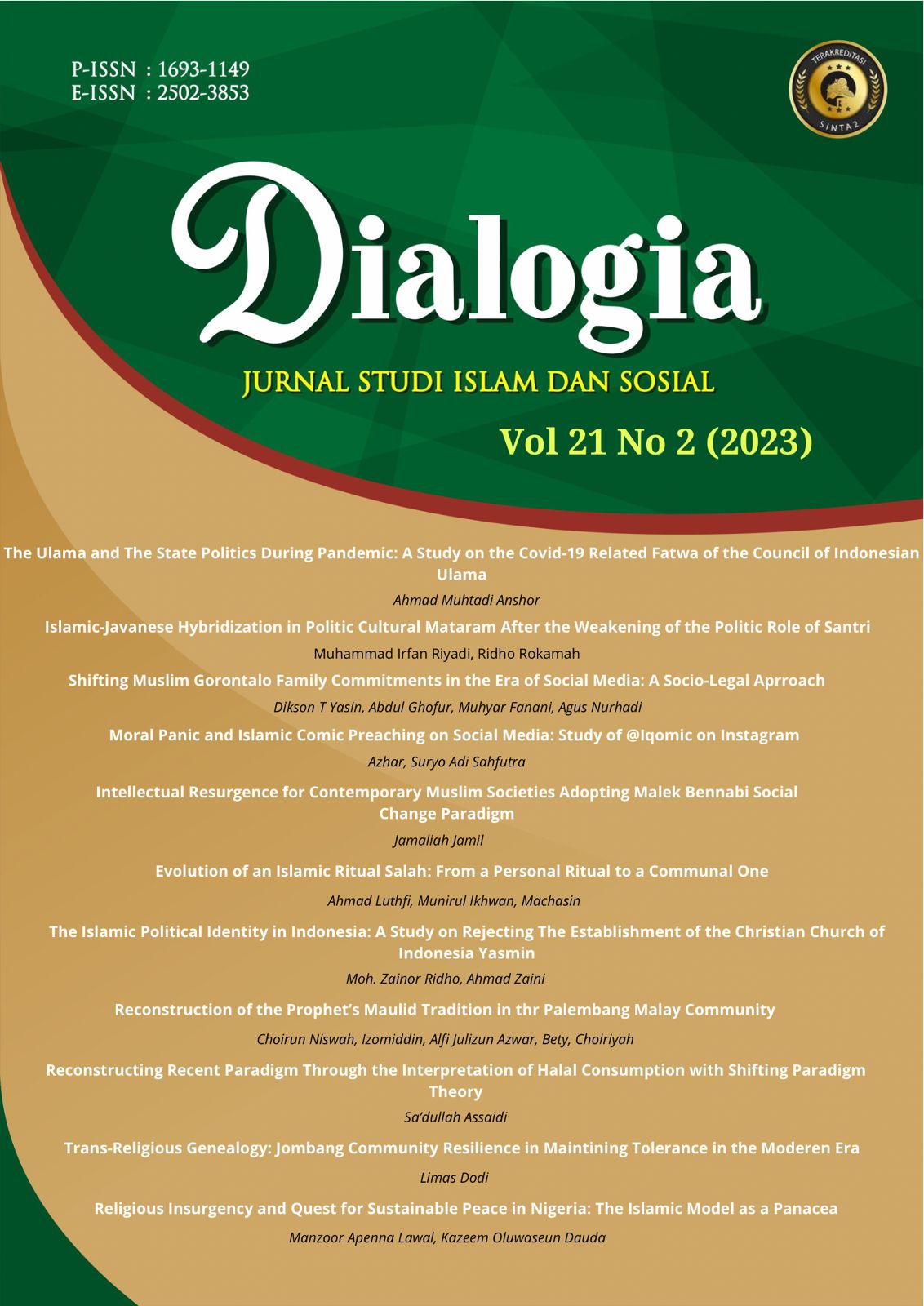The Islamic Political Identity in Indonesia: A Study on Rejecting The Establishment of the Christian Church of Indonesia Yasmin
DOI:
https://doi.org/10.21154/dialogia.v21i2.7281Keywords:
Islamic Political Identity, Rejecting the Establishment, Christian ChurchAbstract
The polemic of the Christian Church of Indonesia (GKI) Yasmin establishment, located in Bogor, has raised various kinds of new problems structurally and culturally. One of the problems at the structural level is the administrative polemic over the permit for the place's establishment of worship from the government of Bogor. On a cultural level, it is the emergence of conflict and intolerance between fellow Muslims””Islam vs. Islam or Islam vs. Christianity””whether social, political, legal, religious, or faith conflicts. The theoretical frameworks used to analyze the research questions are religious roles consisting of ideology, identity, social ethics, political Islamic movement theory, and human rights. The approach used in this documentary is qualitative. This research combines two methods of collecting data: primary and secondary. In-depth interview and cover In-depth Interview. This research determines the role of religion and politics owned by Islamic mass organizations (HTI and FORKAMI) in rejecting the establishment of GKI Yasmin in Curug Mekar Village, Bogor Barat Bogor. According to the research findings, religion has three roles: religion as ideology, HTI and Forkami as pressure groups (soft and complex pressure groups), and social-ethical. In the political context, the political roles of HTI and Forkami are structural Islamic political movements and cultural Islamic political movements.
Downloads
Downloads
Additional Files
- THE ISLAMIC POLITICAL IDENTITY IN INDONESIA: A STUDY ON REJECTING THE ESTABLISHMENT OF THE CHRISTIAN CHURCH OF INDONESIA (GKI) YASMIN IN CURUG BOGOR
- THE ISLAMIC POLITICAL IDENTITY IN INDONESIA: A STUDY ON REJECTING THE ESTABLISHMENT OF THE CHRISTIAN CHURCH OF INDONESIA (GKI) YASMIN IN CURUG BOGOR
- THE ISLAMIC POLITICAL IDENTITY IN INDONESIA: A STUDY ON REJECTING THE ESTABLISHMENT OF THE CHRISTIAN CHURCH OF INDONESIA (GKI) YASMIN IN CURUG BOGOR











